Meet our speakers
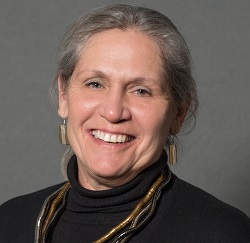
Sherry Lassiter
President & CEO, The Fab Foundation
Sherry Lassiter is one of the architects of the MIT global initiative for field on-site technology development, the Fab Lab program. A Fab Lab, or as users like to call it, fabulous laboratory, is a rapid prototyping platform for technical education, innovation, and personal expression.
The Fab Lab network includes over 1800 digital fabrication facilities in 126 countries. Lassiter is Director of the Fab Foundation, a non-profit organization committed to building technical capacity in a locality, improving individuals’ abilities to develop themselves and their communities and bringing access to tools and knowledge that cultivate and support innovating practices. After a two-decade career in science journalism as a producer, writer, and director for television series such as Scientific American Frontiers, Discover the World of Science, and The Science Times, she became a protagonist in science and technology, becoming part of the story, rather than just telling the story.
As Program Manager for the NSF-funded Center for Bits & Atoms at MIT, she has seen and enabled the personal fabrication movement as it has grown and evolved. Today she serves as Director of the global Fab Lab Program at MIT as well as leading The Fab Foundation, the non-profit spinoff from MIT. Lassiter is currently engaged in the deployment and growth of Fab Labs around the world, enabling grassroots technology development by, for and of the community.
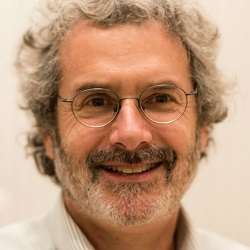
Neil Gershenfeld
Director of MIT’s Center for Bits and Atoms
Prof. Neil Gershenfeld is the Director of MIT’s Center for Bits and Atoms, where his unique laboratory is breaking down boundaries between the digital and physical worlds, from pioneering quantum computing to digital fabrication to the Internet of Things. Technology from his lab has been seen and used in settings including New York’s Museum of Modern Art and rural Indian villages, the White House and the World Economic Forum, inner-city community centers and automobile safety systems, Las Vegas shows and Sami herds.
He is the author of numerous technical publications, patents, and books including Designing Reality, Fab, When Things Start To Think, The Nature of Mathematical Modeling, and The Physics of Information Technology, and has been featured in media such as The New York Times, The Economist, NPR, CNN, and PBS. He is a Fellow of the American Physical Society, has been named one of Scientific American’s 50 leaders in science and technology, as one of 40 Modern-Day Leonardos by the Museum of Science and Industry, one of Popular Mechanic’s 25 Makers, has been selected as a CNN/Time/Fortune Principal Voice, and by Prospect/Foreign Policy as one of the top 100 public intellectuals.
He’s been called the intellectual father of the maker movement, founding a growing global network of over one thousand fab labs that provide widespread access to prototype tools for personal fabrication, directing the Fab Academy for distributed research and education in the principles and practices of digital fabrication, and chairing the Fab Foundation. Dr. Gershenfeld has a BA in Physics with High Honors from Swarthmore College, a Ph.D. in Applied Physics from Cornell University, honorary doctorates from Swarthmore College, Strathclyde University and the University of Antwerp, was a Junior Fellow of the Harvard University Society of Fellows, and a member of the research staff at Bell Labs.
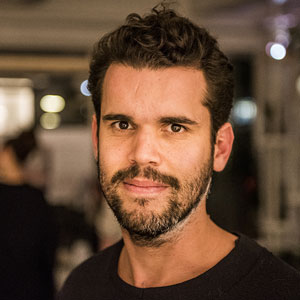
Tomás Díez
Tomás Díez is a Venezuelan Urbanist specialized in digital fabrication and its implications in the future of cities and society. He is co-founder of Fab Lab Barcelona at the Institute for Advanced Architecture of Catalonia (IAAC), and the director of the Fab City Research Laboratory, and the Director of the Master in Design for Emergent Futures at IAAC.
He leads the FAB City Global Initiative in collaboration with an international team of thinkers and makers, and the European project manager for the Fab Foundation. Tomás holds a Bachelor degree in Urban Planning and Sociology by the University Simon Bolivar (Caracas – Venezuela), a Diploma in social work at the University of La Havana (Cuba), a Master in Advanced Architecture by IAAC, and a Diploma in Digital Fabrication from a pilot program to kickstart the Fab Academy by completing the class «How to Make Almost Anything», offered by the MIT’s Center for Bits and Atoms in 2008. He works as a close collaborator in the development of the Fab Lab Network together with MIT and the Fab Foundation.
Tomás co-founded the Exploring Emergent Futures platform in the Design Products department at the Royal College of Arts in London, and is co-founder of initiatives such as: the crowdsensing platform Smart Citizen, the social network FabLabs.io, and the artist residency StudioP52; he has been the organiser and co-chair of the FAB10 Barcelona, the 10th international fab lab conference and annual meeting hosted by Fab Lab Barcelona (IAAC) in 2014. Tomás has been appointed by The Guardian and Nesta as one of the top 10 digital social innovators to watch in 2013, and has been awarded by the Catalan ICT association as the entrepreneur of the year in 2014. His research interests relate to the use of digital fabrication tools to transform the reality, and how the use of new technologies can change the way people consume, produce and relate with each other in cities.
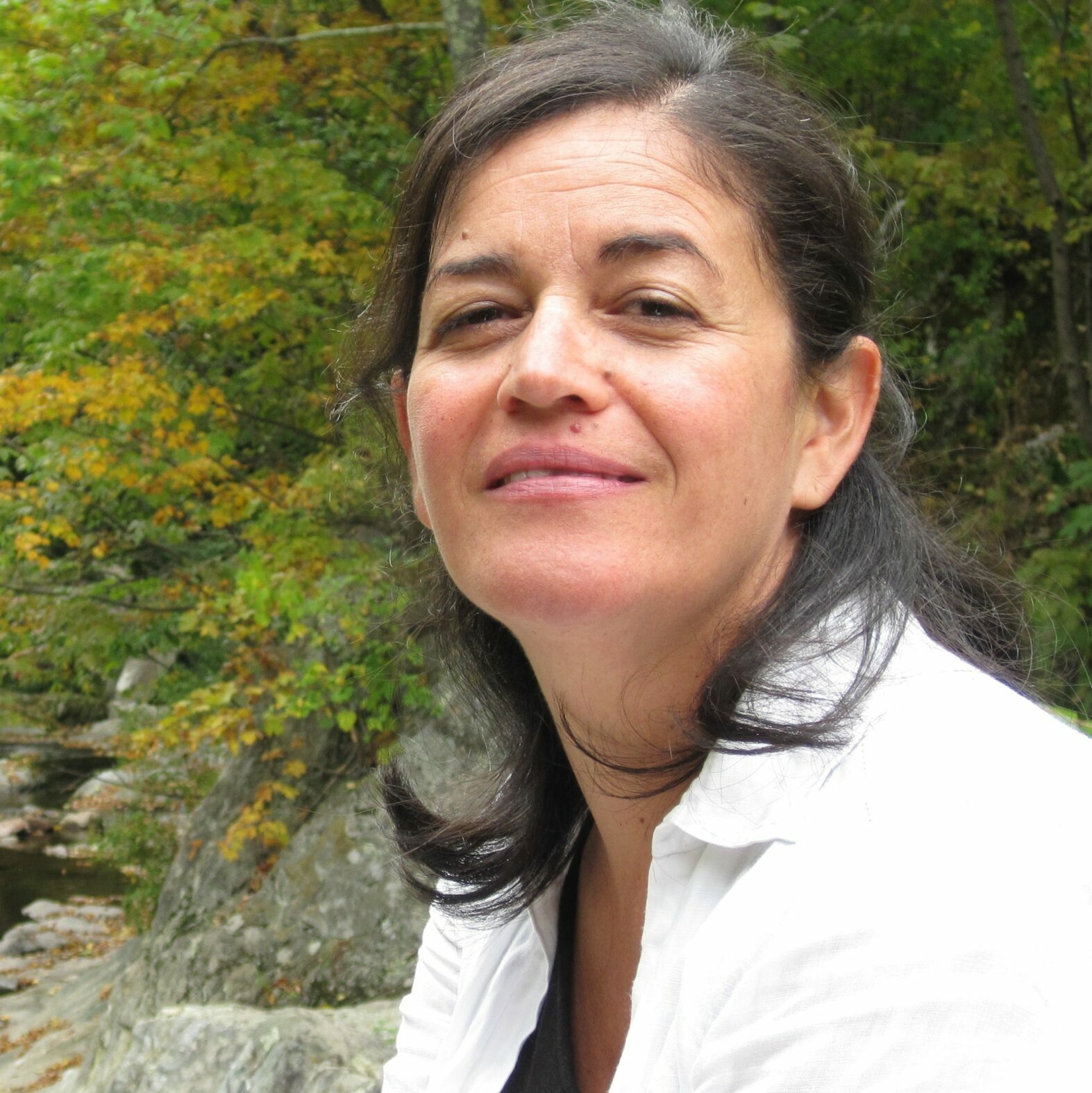
Raquel Peñalosa
Landscape Architect, President IFLA AMERICAS 2014-2018
A practicing Landscape Architect for more than 30 years, Raquel Peñalosa works at the encounter of Landscape Architecture, Urban Participatory Design, Active Citizenship and Social Innovation. She is currently, practicing participatory design and integrating collaborative processes to bring into the design conversation the active citizenship practice for more thriving and human oriented cities. As part of her engagement in the community, she was FLA AMERICAS President from 2014 to 2018, moving forward The Landscape Charter of the Americas. She is presently the President of Communautique, an Open Innovation Organization, who is leading the coming of the FABCITY Summit and the FAB16 in 2021 to Montréal.

Sylvain Carle
“A lot of people think it’s about technology – but first and foremost, it’s about people.”
Sylvain Carle has spent the last 25 years thinking, writing, building, and investing in emerging technologies. Though he didn’t study computer science, Sylvain has been hacking with computers forever, and spent most of his career as a startup entrepreneur at the confluence of media, technology, data and networks.
A self-proclaimed nerd, socialist and pragmatist, Sylvain believes in technology as a means to transform complex systems (even if he knows it is quite hard), and loves investing in ideas and people aiming to change sectors and industries. He is Senior Director at SecondMuse Captial in Montréal, where he focuses on entrepreneurial climate innovation. He served as a General Partner at Real Ventures from 2014 to 2020, where he is still a Venture partner.
Sylvain had a decade of being a CTO and co-founder at Messagia, Interstructure, Praized and Needium from 2001 to 2011. He worked as Senior Developer Advocate at Twitter in San Francisco from 2012 to 2014, where he learned what startups become at scale and to IPO. As a Real Ventures pre-seed partner, Sylvain raised and managed the Orbit pre-seed fund ($30M), played a key role in nurturing the local tech ecosystem, and worked closely with Real’s portfolio companies.
In 2020, pre-COVID, he set course on applying his network and insights to the climate crisis, broadening his scope from technology to impact investing. He still believes data and algorithms can move the needle, but not if it’s not making people’s lives better and protecting the planet. He still knows that money is an incredible lever for progress, and he hopes to catalyze capital for the environmental and social challenges of today and of the next decades.
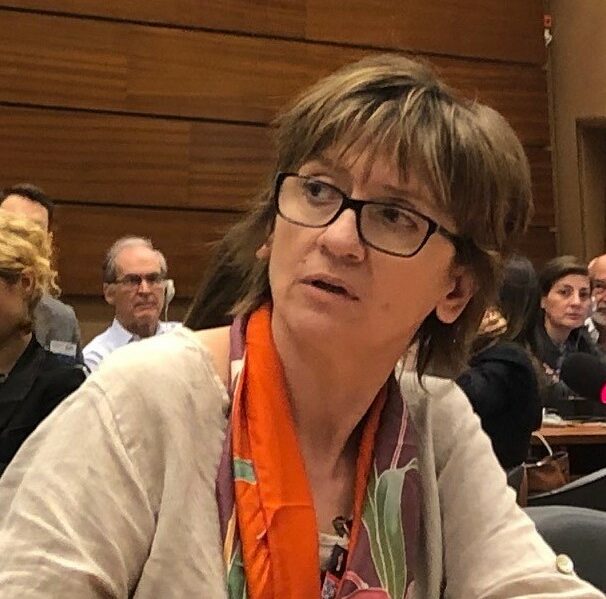
Sonja Novkovic
Professor of Economics and Academic director of the International Centre for Co-operative Management at Saint Mary’s University
Sonja Novkovic is a Professor of Economics and Academic director of the International Centre for Co-operative Management at Saint Mary’s University in Halifax, Canada. Her research, teaching and writing evolves around comparative economic systems, co-operative and broader social solidarity economy, with particular focus on worker ownership, participation and economic democracy.
She contributes to UNRISD Sustainability Performance Indicators project bringing the cooperative economy perspective. She is a collaborator on a four-year research project on humanistic co-operative governance funded by FWO – Belgium. Her co-edited volumes include Co-operatives and the World of Work (Routledge, 2019); Cooperativism and Local Development in Cuba: An agenda for Democratic Transformation (Brill, 2018); and Co-operatives in the Post Growth Era (Zed, 2014).
Sonja is Chair of the International Co-operative Alliance Research Committee, and a member of the NCBA-CLUSA Council of Economists.

Oliver Hillel
Programme Officer, Secretariat of the Convention on Biological Diversity
Oliver Hillel is Programme Officer at the Secretariat of the Convention on Biodiversity in Montréal, Canada, responsible for international and local action, and for the integration of biodiversity into economic sectors and development.
A biologist with a master’s in Environmental Education and MBAs on Managerial Accounting and Hotel Management, Oliver has worked as team leader for a tourism development project in the Philippines, as Tourism Programme Coordinator for UN Environment and as Conservation International’s Ecotourism Program director.
He has managed the Convention’s engagement with provinces, regions and cities for over 10 years. He has also managed a family business on paper recycling, coordinated capacity building programs and products on tourism and hospitality for a Brazilian agency linked to the Chamber of Commerce of the State of Sao Paulo, Brazil, and co-authored several reference publications on nature and urban issues, and serves on the board of several projects and research networks.
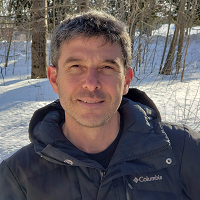
Steve Hamel
Urban Biodiversity Biologist specialist at WWF-Canada
Steve Hamel began his career in ecology in 1990, working on the ground as a wildlife technician, researching marbled murrelets and rainforest songbirds in British Columbia. Since then, Steve has been involved in numerous studies of birds, bats and fish. At WWF-Canada, Steve is a restoration and biodiversity specialist. He develops and implements habitat restoration projects for biodiversity.
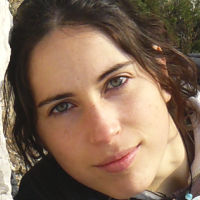
Marie-Ève Roy
Ecology measurement PhD.
I am interested in ecology and biodiversity conservation. I hold a master’s degree in biology (eco-toxicology) from UQAM, CIRÉ TOXEN center (2006-2008), a bachelor’s degree in wildlife biology and a minor in biotechnology from McGill (2001-2005). I have collaborated on different projects such as the impacts of forest management on biodiversity (flora and fauna), the identification and evaluation of hardwood forest ecology issues and the adaptive capacity of forests to climate change (at IQAFF and then ISFORT between 2009-2016). Currently, my work focuses on 1) the conservation of threatened species (fauna and flora) through ecological assessment or field inventories and 2) studies on the impacts of forest management.
The latter is the focus of my PhD on the effects of silviculture on plant and fungal communities in temperate forests. This project focuses on the variation in phylogenetic and functional diversity of these communities along a chronosequence. The objective of this project is to understand the impact of silvicultural practices on soil ecology, understory plants and soil fungi (DNA), especially since the conservation of the forest and its ecological functions depends on it. We are interested in the effects along a chronosequence of over 30 years, which we compare to unmanaged stands. This thesis project also aims to explore the relationships between the diversity of these communities and soil, litter and canopy properties, and their effects on forest productivity.
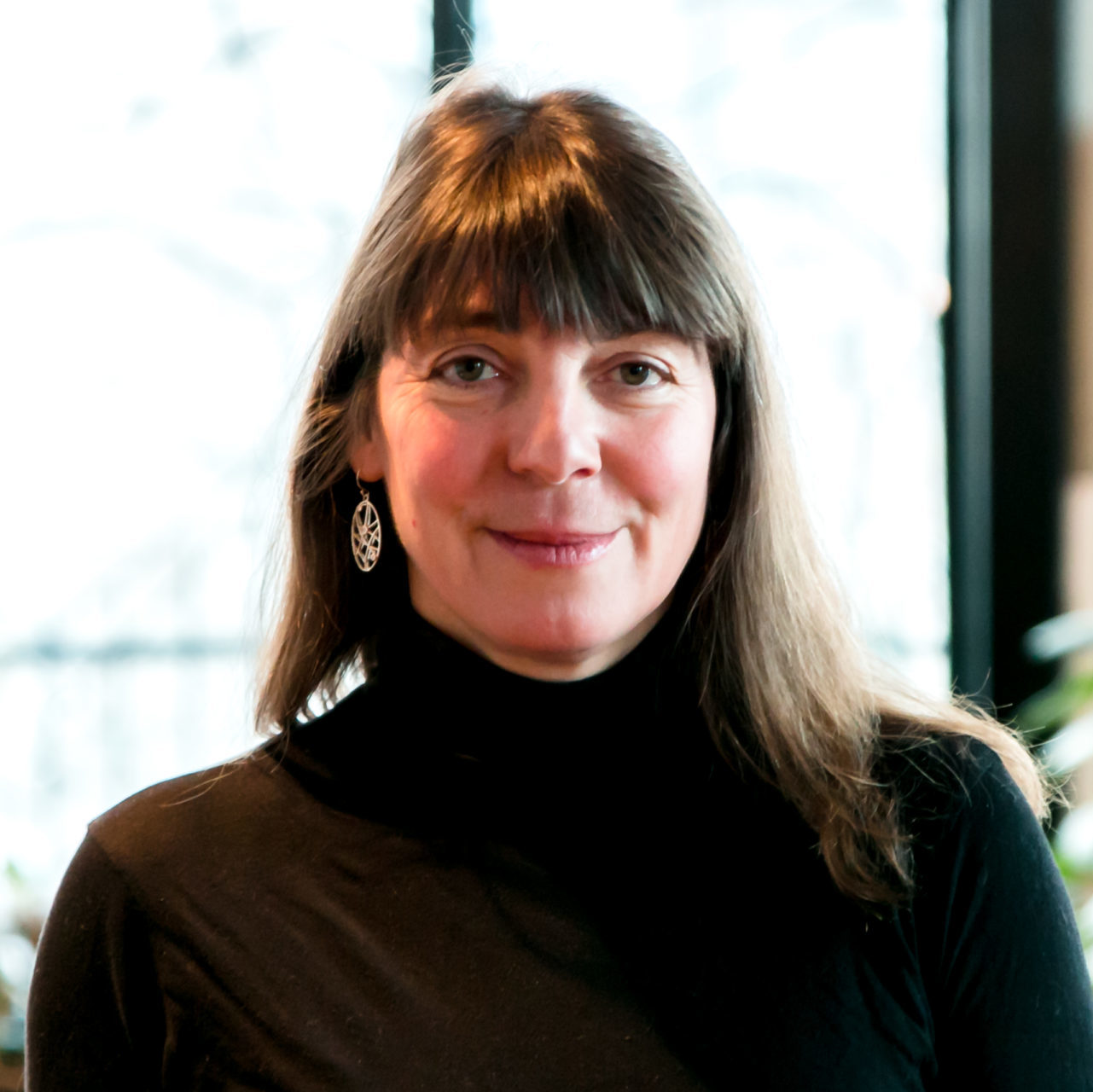
Samantha Slade
Healthy collaboration and equitable togetherness are what drives Samantha. Co-founder of Percolab, an international lab in co-creation, she is active in the social part of the socio-ecological transition. Samantha puts her cultural anthropology background in service of open innovation processes like Imagine our Fab Labs or Fab Labs Nation. She works with organisations and ecosystems to innovate culture and governance, with public, private and community sectors and is convinced that business is a key lever for change (see her TedX: The Future is in Business as Commons>). Author of Going Horizontal: Creating a Non-hierarchical Organization, One Practice at a Time (BK Publishers, 2018), Samantha is active in the participatory leadership movement. Samantha believes that inclusive listening, collaboration and governance is at the heart of responsive and regenerative cities.
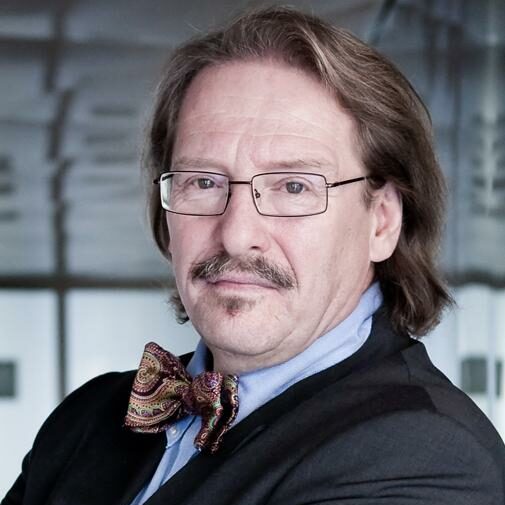
Pierre-Léonard Harvey
Pierre-Léonard Harvey obtained a Ph.D. in Sociology from the University of Montréal in 1993 (dir. Jean-Guy Vaillancourt and Kimon Valaskakis), a Master’s degree in Psychology, Pedagogy and Social Psychology of Communications from the University of Strasbourg in 1981 (dir. Abraham A. Moles) and a B.A. in Communications from the University of Ottawa in 1978.
He has written several articles and books on three main fields of research: 1) distance learning, 2) virtual communities (via communautics) and 3) participatory design and citizen engagement. His work has been published in French, English, Spanish and Brazilian Portuguese. He is currently writing a book on knowledge mobilization in digital spaces, from the perspective of the links between Digital Transformation and Sustainable Development.
Pierre-L. Harvey is the founder and director of the Laboratoire de Communautique Appliquée de l’UQAM, a research group that works in virtual mode. Fields of interest, training and research :
- The problems of responsible and sustainable innovation in the Great Challenges of Society.
- Theories and methodologies of collaborative systemic design (Communal Design).
- The spatial and topographical turn in organizational communication and organizational theory.
- The multiple aspects of Digital Transformation for Sustainable Development.
- Multi-helix partnerships and stakeholder engagement in innovation ecosystems.
For several years he has been involved in the work of Communautique, among others, for the preparatory work of the “FAB 16 2021” which will take place from August 9 to 15, 2021, in Montréal (Canada), which will host the 16th international meeting of Fab Labs and the Fab City Summit under the theme “Building the Commons”.
He has also contributed to the studies on Governmental Research Directions (FRQ) in participatory design and Results-Based Management (RBM) via the Institute of Digital Governance (IGN) and the Québec Chief Scientist team (2016-2019). More recently, he will participate in the International Society of System Sciences (ICSS) work and conferences during the years 2021 and 2022.
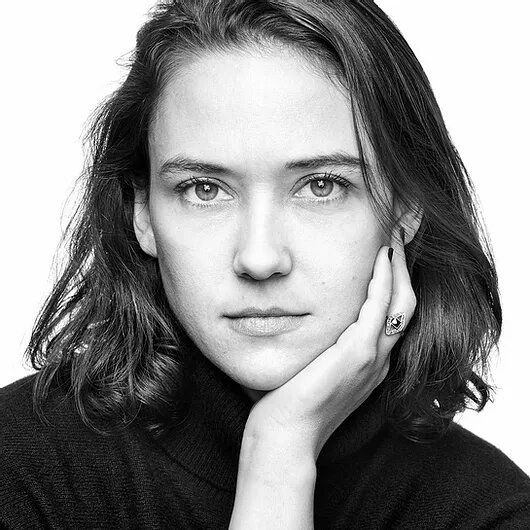
Pia Mancini
Co-Founder & CEO Open Collective
Pia is co-founder & CEO at Open Collective, as well as Chair of DemocracyEarth Foundation, a democracy activist, and an open source sustainer. She worked in politics in Argentina and developed technology for democracy around the world. She’s a YC Alum, YGL (World Economic Forum), globe-trotter, and Roma’s mum.
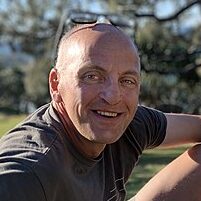
Jonathan Ledgard
J.M. Ledgard (born 1968) is a British born novelist and an expert in advanced technology, nature, and risk in emerging markets. He also works with conceptual artists.
Career
Foreign and War Correspondent
After reporting on the Romanian revolution for The Scotsman as a student, he worked as a foreign political and war correspondent for two decades. He reported lead stories from 60 countries for The Economist, including stints in Asia, Latin America, Eastern Europe, and Africa.His emphasis was on security, natural resources, and macroeconomics. He reported on several conflicts and is a founder member of The Frontline Club. He was a contributing writer to 1843, The Economist’s sister magazine. He writes occasional long pieces for The Atlantic and other publications.
Novelist
Ledgard is the author of two novels, Giraffe (2006) and Submergence (2013), which was made into a film in 2017 of the same name by Wim Wenders. His work has been compared to W.G. Sebald and John Le Carré. He has referred to his writing as “planetary”. Submergence was a New York Times Book of the Year and a pick of the year by Publishers Weekly, Library Journal, NPR, and New York. Giraffe is considered a cult novel in the animal rights movement. A book of essays, Terra Firma, concerned Africa and technology.
Futurist
Linnaeus, a prototype for interspecies money transfer
He was a fellow and director at the École Polytechnique Fédérale de Lausanne since 2012, and has been involved in promoting super advanced technology in Africa. He works with leading artificial intelligence scientists and roboticists to improve outcomes in often very poor communities and for nature. He was an early proponent of drone technology. He invented the concept of blood delivery by drone, introducing the American startup Zipline into Rwanda. He advanced the idea of droneports across the tropics, realising together with the architect Lord Norman Foster a droneport prototype at the 2016 Venice Biennale. His cargo drone work has been taken up and scaled by the World Bank, the UN and commercial partners. He supports digital self-sovereignty and was involved in early mobile money. Since 2018, he has been focused on how artificial intelligence will perceive nature. He was a visiting professor in AI and Nature at the Czech Technical University. He is presently developing a prototype for interspecies money, by which rare non-human life forms may revalue themselves to improve their chance of survival. He is an early proponent of the interspecies, an attempt to better comprehend other species using new technologies. He is a fellow of the Linnean Society and was a visiting fellow at the Woods Hole Oceanographic Institution.
Art
He collaborates with major artists on nature based projects, including on the deep ocean and digital futures with Olafur Eliasson, on the interspecies with Tomas Saraceno, and Federico Diaz on nature based projects
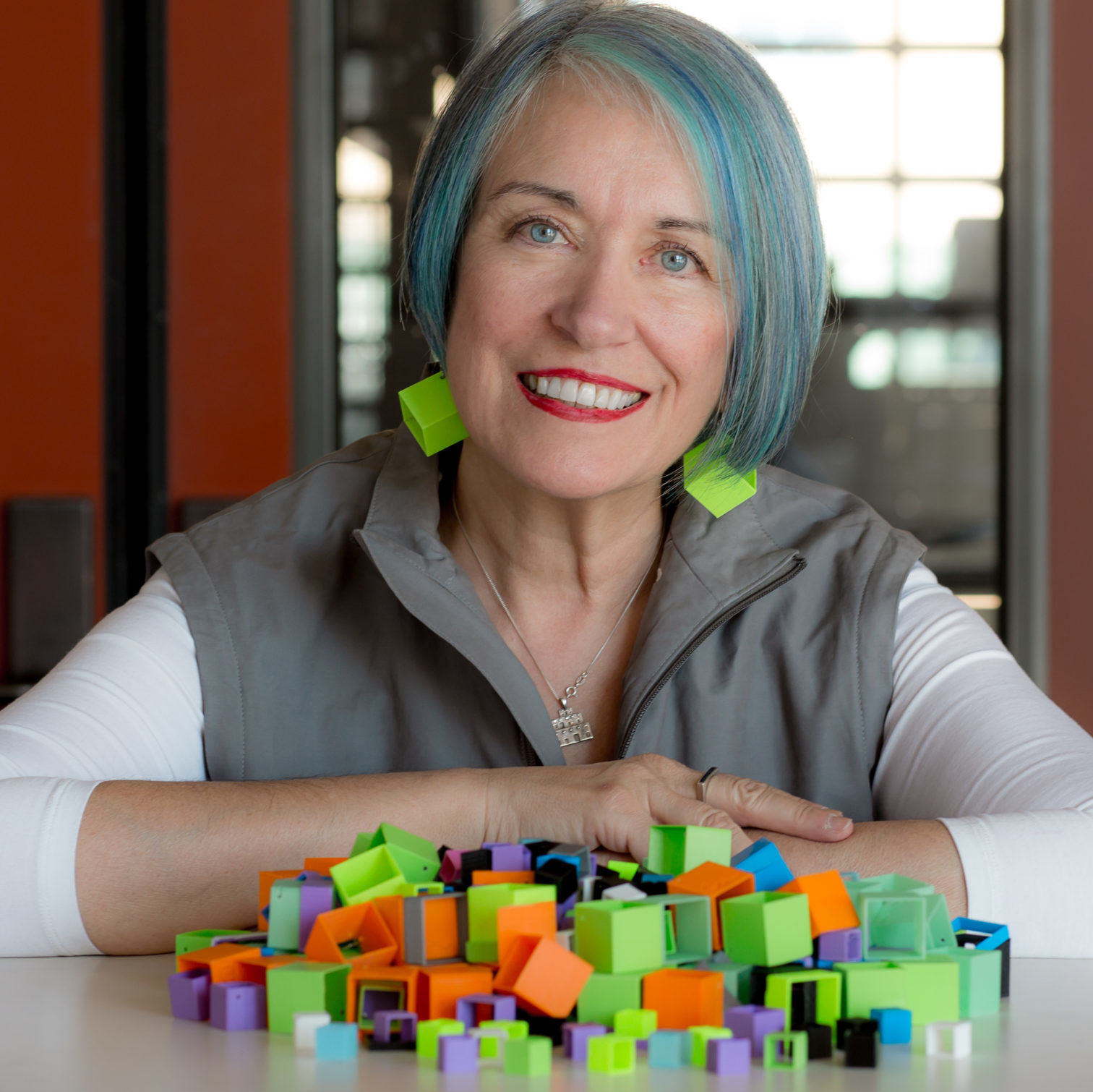
Sarah Boisvert
Sarah Boisvert has over 30 years experience that bridges workforce training and advanced manufacturing.
Ms. Boisvert is a co-founder of Potomac Photonics, Inc. of Baltimore MD, which she joined to commercialize a proprietary RF-discharge Excimer laser. There she moved the company into the laser machine tool business with a contract service job shop. She developed in-house training programs since at that time formal programs didn’t exist in these fields for laser operators and technicians.
Following the sale of the company in 1999, Ms. Boisvert founded Fab Lab Hub, part of the Fab Lab Network based at MIT’s Center for Bits and Atoms, in order to foster entrepreneurship, STEM education and workforce training in digital fabrication manufacturing skills. In Santa Fe, NM, she operates two Fab Labs that offer Digital Badges, paid internships and entrepreneur-in-residence programs, while providing contract manufacturing services in the biotech, jewelry, art, medical device and microfluidics industries.
With funding from America Makes, Fab Lab Hub created additive manufacturing Digital Badge trainings for FDM and SLA 3D Printing, and also worked with the Los Alamos National Lab on General Lab and Laser Safety Badges. She founded the New Collar Network with ten other fab labs in order to bring digital badges for New Collar jobs skills to education organizations in North America. Badges in CNC Machining, laser cutting and marking, optics and photonics, design thinking and entrepreneurship are forthcoming.
Partially funded by Verizon, in 2016 Ms. Boisvert conducted a study into digital skills needed for operators and technicians in manufacturing. She interviewed 200 companies ranging in size from startups to Fortune 100 multi-nationals across a wide variety of industries. The data resulting from her work is the basis of her book, The New Collar Workforce, published by Photonics Media Press. Wishing to make the stories of New Collar workers more accessible to young people, she partnered with Art Guild Press in Santa Fe, NM to create People of the New Collar Workforce. The new book features Augmented Reality links to videos that bring the stories of today’s workers to life.
Ms. Boisvert has consulted for the “Future Workforce Now” project organized by the National Governors Association, the Fab Foundation and FHI360 to develop policy options for States. She has been a keynote speaker for many workforce and technical organizations including the Consumer Electronics Association, and has been interviewed extensively, most recently by the BBC London, the Wall Street Journal, and Industry Week.
Her Market Segmentation graduate work at Johns Hopkins University led to her expertise in productization of high tech devices. Ms. Boisvert is a Fellow and Past President of the Laser Institute of America, an Ambassador of America Makes, and has served on the Optical Society of America’s Industry Advisory Board as well as the Boards of numerous international technical societies. She makes 3D Printed jewelry for fun.
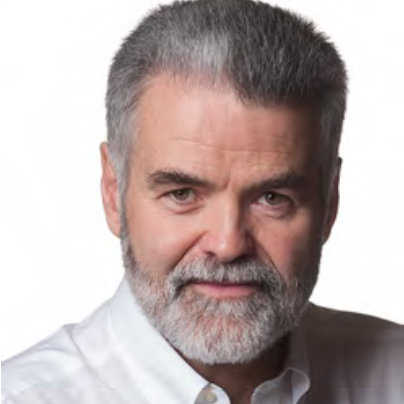
John Houston
Born in 1954, John Houston spent his first eight years in the Canadian Arctic. Early immersion in Inuit culture has affected his entire life. Later, in British and Ontario schools, John still called the North home, spending summers on the land with Inuit friends. His first job in film was as coffee boy on The White Dawn (Paramount/73), adapted from his father, James Houston’s first novel. John graduated from Yale University in 1975, having spent his junior year in Paris, print–making at Atelier 17 while gaining fluency in French. When Inuit artist Lipa Pitsiulak offered him the position of Art Advisor to Pangnirtung’s printmaking project, he seized the opportunity to return north. John enjoyed the position for five years, bringing out four remarkable graphics collections, gaining complete fluency in Inuktitut, and creating the story idea for Art of the Arctic Whalemen, a documentary directed by his father.
Hollywood called, and he was off on a 20,000 mile trek, casting Inuit for Carroll Ballard’s Never Cry Wolf (Disney/82) on which he served as 1st Assistant Director. With the proceeds, he and his mother established Houston North Gallery in Lunenburg, Nova Scotia, now in its 40th year of showcasing Inuit art. They also co-founded Folk Harbour, the province’s longest-running music festival. Since 1991, John has guided travelers on Arctic sailings with Adventure Canada. He worked on films around the world, and rejoined Ballard to make Fly Away Home (Columbia/96).
With 25 years of helping directors to realize their vision as his apprenticeship, John began filming his own stories in 1998, co-writing and directing Songs in Stone, a one-hour documentary about the collaboration between his parents, James and Alma Houston, and the Inuit of Kinngait/Cape Dorset, that launched Inuit art onto the world stage. His Arctic trilogy includes a quest for the Inuit deity, Nuliajuk: Mother of the Sea Beasts, and is capped by Diet of Souls, a look inside the mind of the Inuit hunter. Then Kiviuq, a performing arts special, revived the ancient Inuit shaman/hero whose story missionaries strove to eradicate. He celebrated his father’s life in James Houston: The Most Interesting Group of People you’ll ever Meet, then, for his first drama, John adapted his father’s children’s book, The White Archer. These films all won national and international awards. Growing up between two cultures gave John an appreciation for the values he explores in his work. To help promote and preserve the Inuit oral tradition, John co-authored inuitQ.ca, a Virtual Learning Environment (VLE) on Inuit Traditional Knowledge with Acadia University, followed by a website on the recommendations of the Truth and Reconciliation Commission: TRCtalk.ca. John lectures and screens his films nationally and internationally, including presentations at Yale, Berkeley, the Smithsonian (Washington & NYC), Montana, Ottawa, Vancouver, Spain and Tokyo. Dedicated to growing Nunavut’s film industry, John was Ajjiit Nunavut Media Association’s founding President, and the 2005 recipient of their Industry Recognition Award. He co-produced feature film The Snow Walker and associate-produced Sleep Murder. For service to the Directors Guild of Canada, John was the 2012 recipient of the Don Haldane Distinguished Service Award. He has since co-produced the feature film Copperhead, capper to Ron Maxwell’s Civil War trilogy. In 2017, John issued a wall-sized six-panel environmental photographic mural, “The Six of Bees.” In Fall 2019 he released two films: L’NUK 101: Finding Common Ground, a docudrama on which he mentored three Mi’kmaq as co-writer, co-director and co-producer; and his eighth film, in which Northern Québec Inuit and Cree recount the rise of their co-ops: Atautsikut/Leaving None Behind. John Houston is delighted and inspired to have been selected in 2021 as an inaugural explorer in The Explorers Club 50: Fifty People Changing the World the World Needs to Know About. John shares a Halifax heritage home with his wife, marine biologist and fellow Fellow of the Royal Canadian Geographic Society, Ree Brennin Houston. They enjoy spending time with John’s son Dorset when he’s home from Queen’s University, and daughter Becky Kilabuk of Iqaluit, Nunavut.
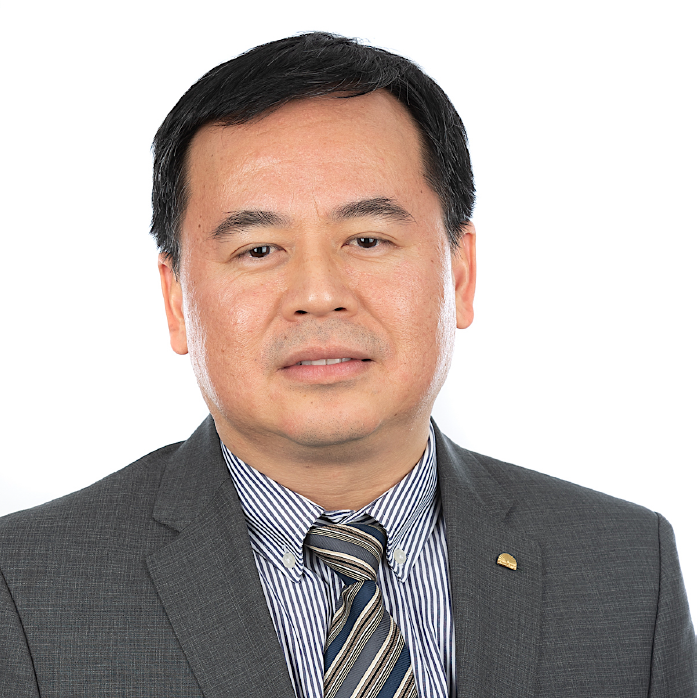
Sokchiveneath Taing Chhoan, MMCCU, ADM.A.
I hold the position of Socio-Economic Development Senior Manager and sit on the Management Committee at Fédération des Coopératives du Nouveau-Québec (FCNQ) from 2011-2020, where I have held several positions over the past 29 years. My first mandate as Senior Manager was to create the Nunavik financial services cooperative, a banking services for all Nunavimmiut of the fourteen communities in partnership with the Caisse d’ économie solidaire Desjardins from 2007-2015 and, later on, leading all local projects for the cooperatives and some at the FCNQ activities. I am also responsible for the insurance coverage for all 14 cooperatives, the FCNQ, and the 10’s FCNQ Subsidiaries.
I’m a Member of the Chartered Administrators Order of Quebec (ADM.A.) and recently graduated from Saint Mary’s University with a Master of Management of Co-operatives and Credit Unions (MMCCU). I’ve also earned a Master’s Degree short program in Financial Performance at TÉLUQ (UQAM) and a Bachelor in Management from the HEC-Montreal. My studies in accounting and finance and my experience with the cooperative network allowed me to represent FCNQ and its member cooperatives and sit on the board of several organizations: Conseil québécois de la coopération et de la mutualité (CQCM), Caisse d’ économie solidaire Desjardins, Nunavik Social Economy Round Table, Schefferville Petro inc., delegate for Cooperatives and Mutuals Canada (CMC), Nunavik cooperative development fund (Chairperson), and participating in all ten FCNQ subsidiaries board of Directors.
I also sat on the board of UNITÉ, a center for community development initiatives, from 1995 to 2005, and on the board of SOCODOVI (Société de coopération pour le développement international), from 2010 to 2013.
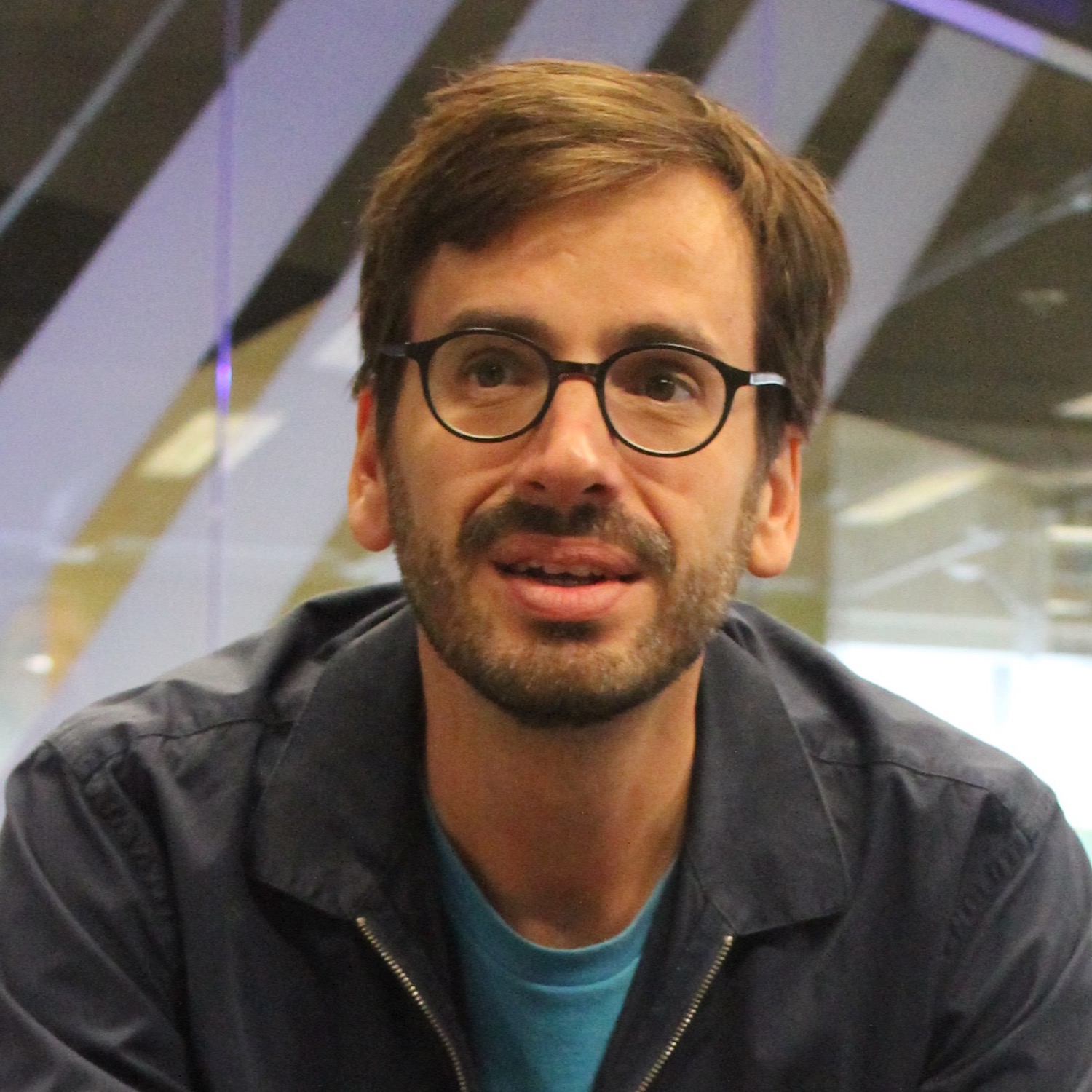
Guillaume Coulombe
Entrepreneur, founder of Procédurable and co-founder of Fab Labs Québec
A multi-potentialist entrepreneur, founder of Procédurable and co-founder of Fab Labs Québec, Guillaume promotes projects and composes processes for the benefit of communities. He is a wiki designer and a fervent believer in collaborative work, and his approach is based on the free and Commons. At the crossroads of tradition and open innovation, he launched Le violon de Jos, a multimedia and lively encyclopedia dedicated to traditional music from Québec. In the continuity of this unifying project, he also conceived LabScène, a technotrad mediation of show production in Fab Labs and medialabs.
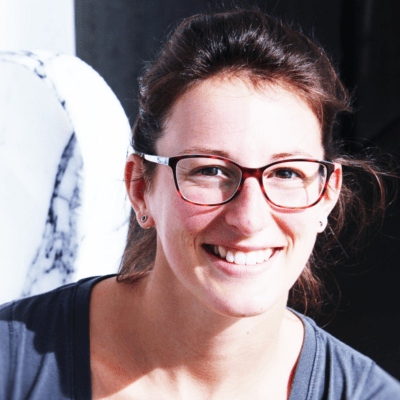
Annie Ferlatte
Annie works at Communautique and its Fab Lab, echoFab. An architecture technician architecture and holds a bachelor’s degree in industrial design, she specialised in environment and circular economy for her graduate degree in strategic eco-design. As part of the echoFab team, Annie contributes to the development, testing and implementation of environmental solutions for the organisation and for user services.For her, in a fab lab everything is to be discovered, experimented and shared.The “Canari” project she implemented, a citizen-oriented air quality sensor made in the fab lab, is a perfect example of symbiosis between collective intelligence and new technologies to bring new opportunities and contribute to the search for solutions for a better future.
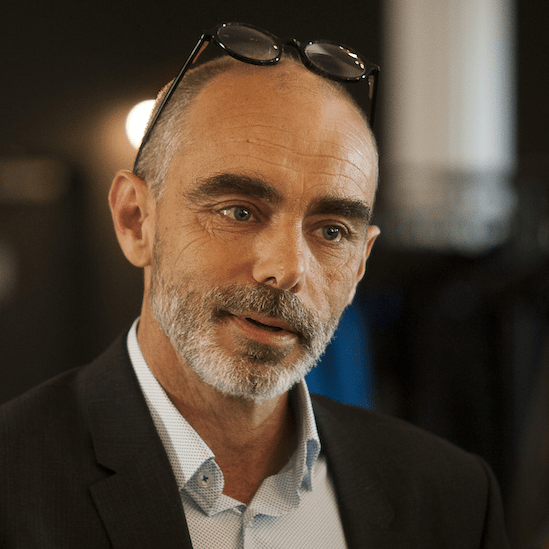
Martin Van Den Borre
Manager of the Fab City office for Québec
Passionate about appropriate technology, science, history, art and literature, Martin has completed studies in literature and languages, warm region agriculture and business administration. In the 90’s, he was a volunteer cooperant in El Salvador, a producer of alpine and native plants, a garden educator, a landscaper, a youth worker, a farm worker and an operator in a satellite reception and telemetry station.
At the age of 30, he returned to the world of cooperatives and fair trade where he developed an expertise in health projects, intentional communities, self-management and projects with a technological and artistic flavour. He was a member of La Siembra, a North American pioneer in fair trade cocoa, where he held various positions. He is involved with Dépanneur Sylvestre and participates in various boards of directors, research committees and working groups in the US, Mexico and Canada, and has developed a solid reputation for turning around collective enterprises and developing international partnerships.
He has led a chamber of commerce and CITIES, an international center for knowledge transfer and innovation in the social economy. His writings have been published in the United States, Europe and South Korea. Over the years, he has been the co-recipient of several awards and recognitions, notably from the City of Gatineau, the Mouvement Desjardins, the Fondation québécoise en entrepreneurship and the Association des manufacturiers exportateurs du Québec.
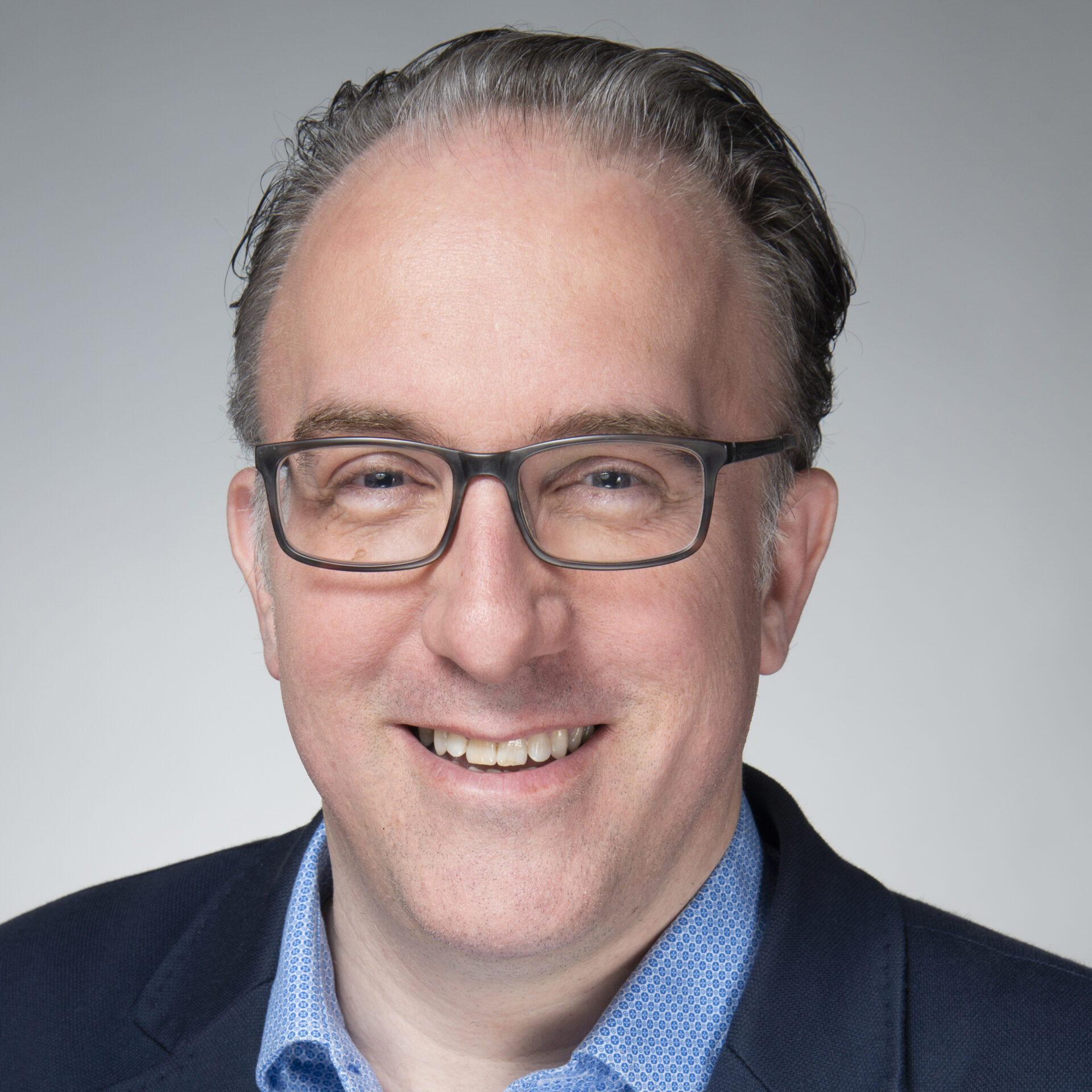
Geoffroi Garon-Epaule
M.A., PhD Candidate, Expert in digital transformation and educational technology
15 years of experience in digital transformation as an educational advisor, researcher and trainer specializing in innovation and educational technology (EdTech, Open Badges, Fab Lab), in open and social innovation (Living Lab, community of practice) and digital social systems design (Fab City).
Since 2015, as a doctoral researcher and entrepreneur on digital badges, a certification system (Open Badges) for the digitization, validation and discoverability of skills, achievements and diplomas. He has presented more than 70 conferences and workshops, developed a digital badge platform on WordPress (BadgeFactor) and supported around ten clients in Québec, France and the United States. At the research level, he develops and validates a model of organizational design and assessment of the level of digital maturity of organizations in a sector-based approach in innovative manufacturing to implement the use of digital badge systems.
It is developing in collaboration with the University of Québec in Montréal (UQAM) a French-speaking online course (MOOC) on Design thinking and digital innovation in connection with the movement of digital countries (Estonia) and that of smart and green cities. (Fab City).
As Vice-President of the Communautique Board of Directors between 2016 and 2019, he contributed to the transformation of this experimentation and training hub into open innovation and contributed to the hosting of the international Living event. Labs in 2016 in Montréal as well as obtaining the international meeting of Fab Labs (FAB16 Montréal, Fab City Summit) in Montréal in 2020.
Since 2019, he has been an educational advisor in educational technology at the Collège de Bois-de-Boulogne in Montréal. He collaborates to the Digital Innovation Hub programs (IT, multimedia, 3D animation). Also, he supports the management of the college in the development of strategic planning for the digital transition 2020-2025.
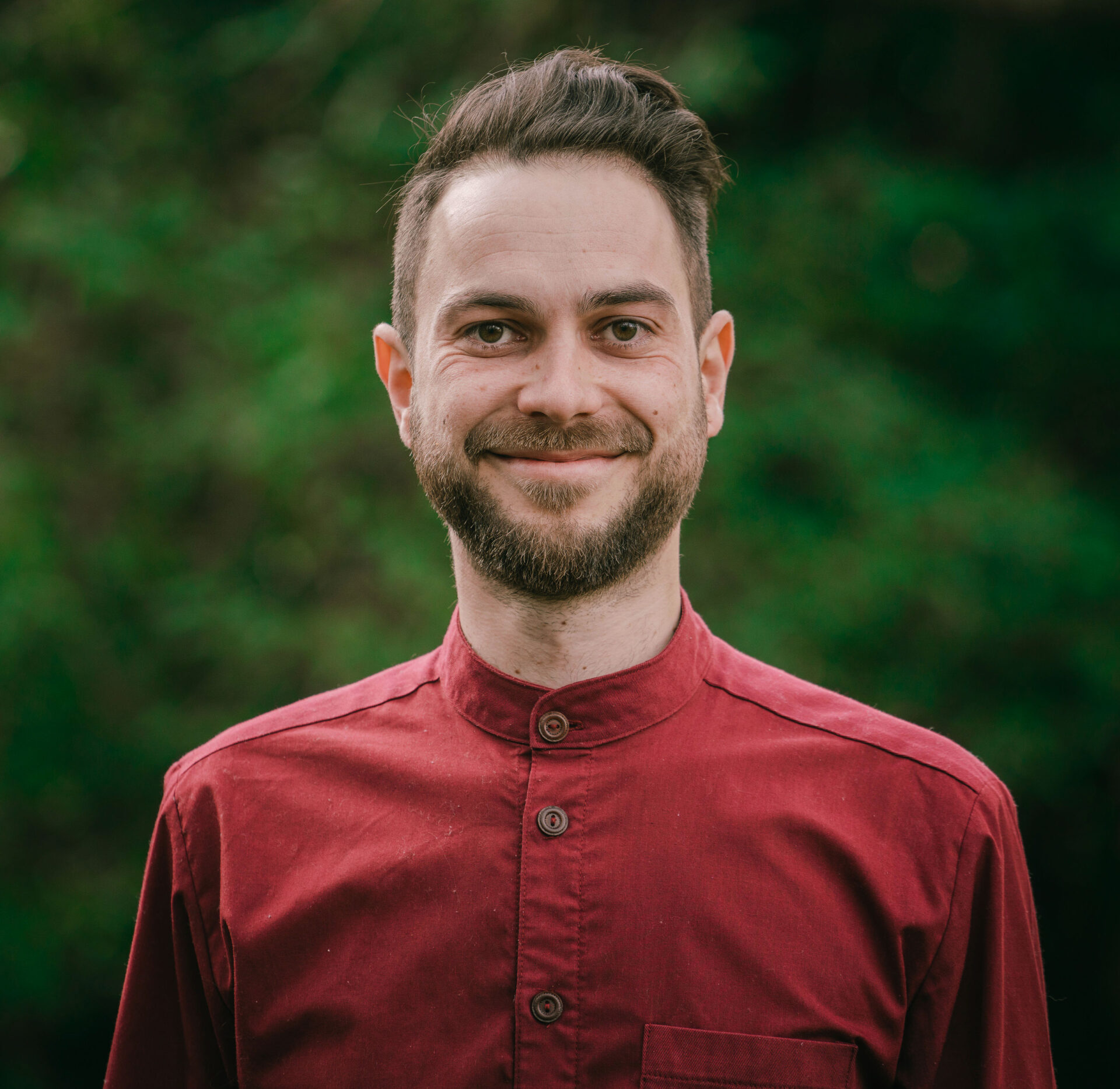
Jimm Paquet-Cormier
Jimmy Paquet-Cormier is an expert in collaborative and territorial innovation. He works as a researcher at the Living Lab in Open Innovation (Llio). He is currently completing a Ph.D. in Design at Lancaster University. His thesis focuses on urban innovation laboratories in Europe. He has completed a master’s degree in urban studies about the participatory governance of major waterfront redevelopment projects and has a bachelor’s degree in international urban planning at UQAM. His professional career has led him to develop his expertise at municipal, provincial and European levels.
At the municipal level, he worked at the Office de consultation publique de Montréal (OCPM) for nine years where he was the head of innovation between 2013 and 2016. At the provincial level, he worked at Economic Development Canada (CED) and he was a member of the executive committee of the Saint-Laurent chapter of the International Association for Public Participation (AIP2).
More recently, Mr. Paquet-Cormier has worked on European projects. First, as a participatory designer at Future Cities Catapult he wrote practical guides on inclusive participatory methodologies, public participation methods and on urban innovation hubs. He was also a strategic consultant on virtual, augmented and mixed reality projects in urban planning. Second, as a researcher in the service design department of the Royal College of Art, he developed a social innovation methodology applied to the redevelopment of blue and green infrastructures.
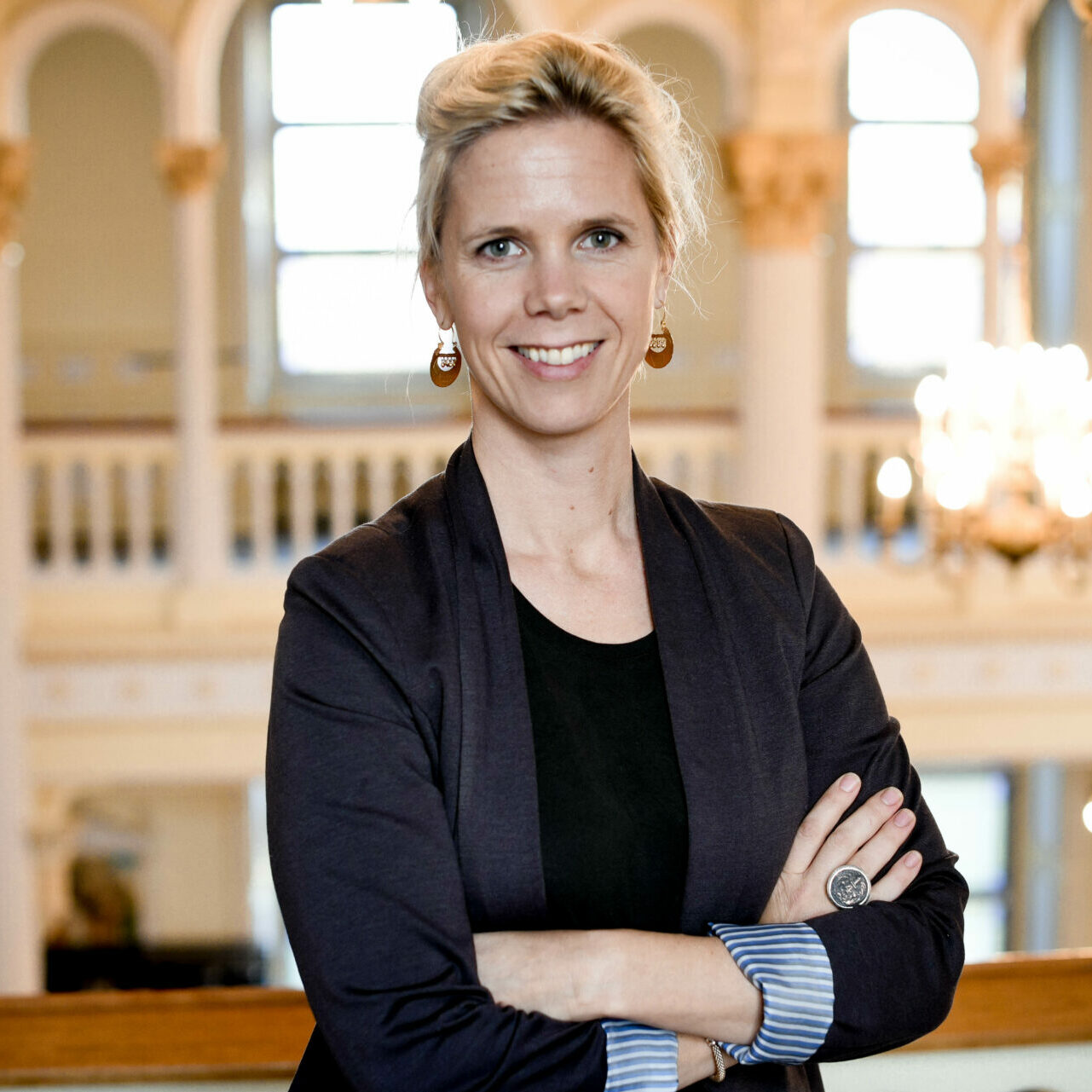
Béatrice Alain
Executive Director of the Chantier de l’économie sociale
Béatrice Alain is the Executive Director of the Chantier de l’économie sociale, an independent organisation that brings together actors and partners of the social economy, in order to promote collective entrepreneurship and develop new sectors and tools able to support the emergence of this development model. By enabling the social economy, a model based on of solidarity, equity and accountability, the Chantier aims to support the development of a plural economy in service of the common good that answers the needs and aspirations of communities. A privileged interlocutor of the Québec government in matters of social economy, the Chantier is also recognized internationally for its work to develop an ecosystem to enable the development of the social economy.
For several years, Mrs. Alain has been particularly interested in the means and strategies to facilitate dialogue and ultimately the collective action of stakeholders from different sectors and different territories in order to reinforce the development of the social economy. Mrs. Alain, who has a background in economics and political science, is also co-president of the TIESS, an organisation that enables the liaison and transfer of social economy innovations for the development of territories in Québec, secretary of the board of the Chantier de l’économie Trust, a patient-capital fund for social economy enterprises, president of C.I.T.I.E.S., an international organisation for the sharing and transfer of best practices of the social economy at an international level, and a member of the Global Social Economy Forum Steering committee.
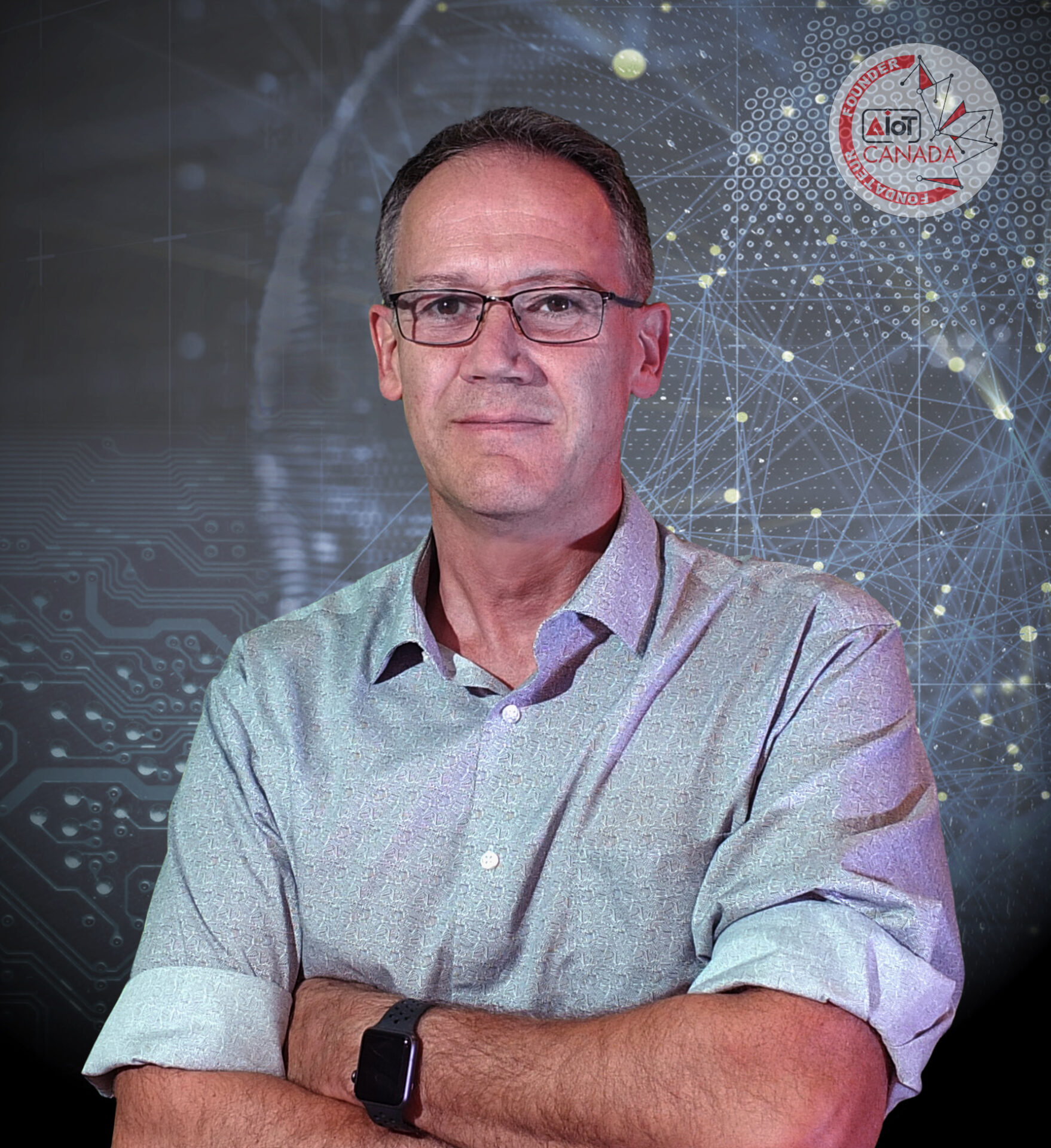
René Breyel
“AIoT Visible Expert”
René Breyel founded CLARIDION 20 years ago to offer specialized monitoring services and management of critical technological infrastructures. Today he addresses the extraordinary opportunities promised by the IoT (Internet of Things) and AI (Artificial Intelligence). Passionate about the integration of innovative technologies and their impact on our society, he recently founded “AIoT Canada” with the mission of accelerating the adoption of IoT in Canada and developing the digital talents of tomorrow.
As a strategic consultant, he now offers innovative companies the strategic and operational support they need to ensure the success of their digital transformation.
Mr. Breyel is a graduate of the EFREI / ESIGETEL engineering school (IT – Network & Telecommunications, Paris, 1990). He is a member of the Dawson AI advisory board and participates in numerous events as a speaker or facilitator of technology panels.
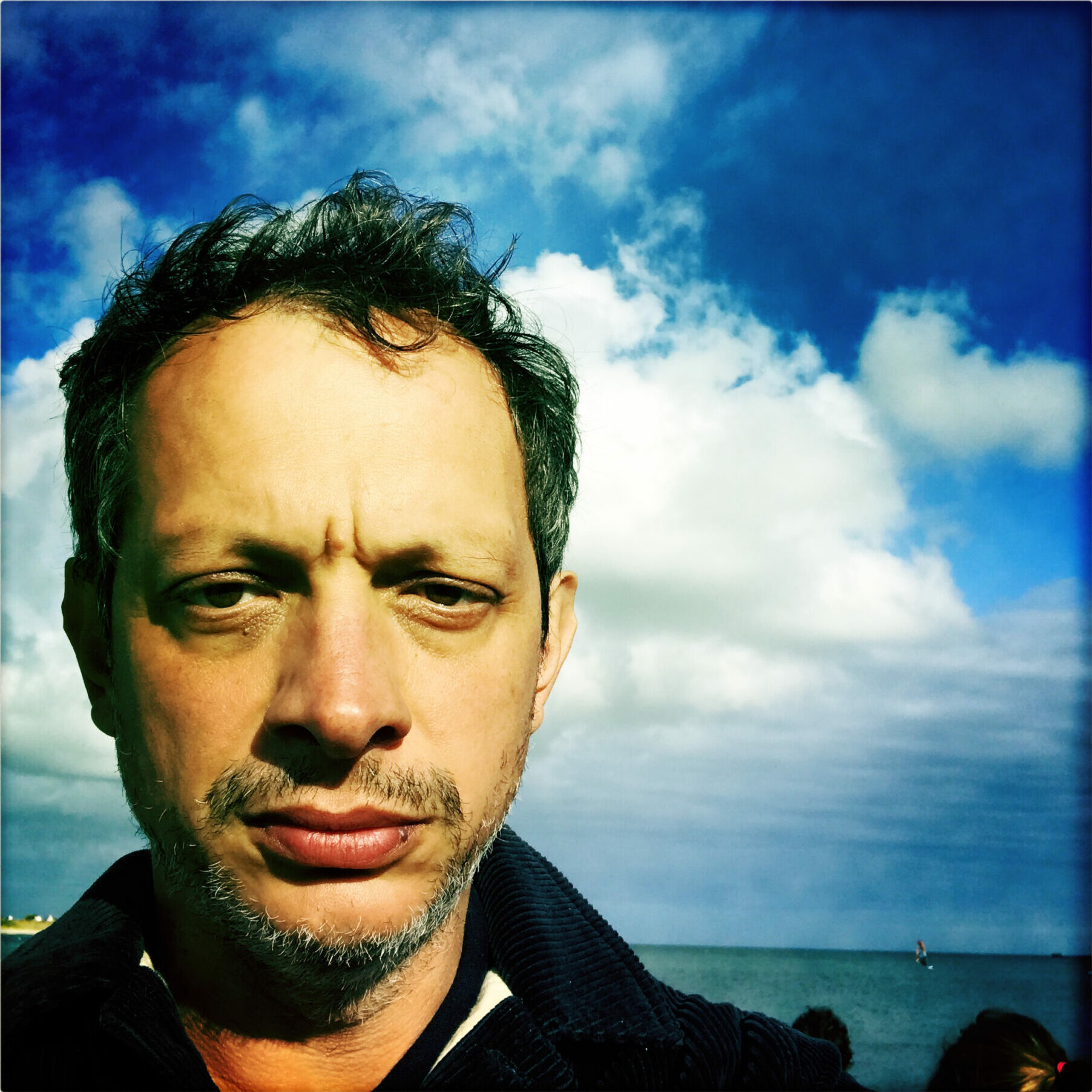
Richard De Logu
Director of the BUG association
Director of the BUG association based in Rennes, Brittany. This non-profit organization, a pioneer in the field of digital uses, defends a balanced vision of digital, respectful of everyone’s rights and entrepreneurial freedom. As a lawyer, passionate about digital technology and its emancipatory potential and aware of its excesses, musician and promoter of the Commons, he actively participates in the LabFab network of which he is the co-creator.
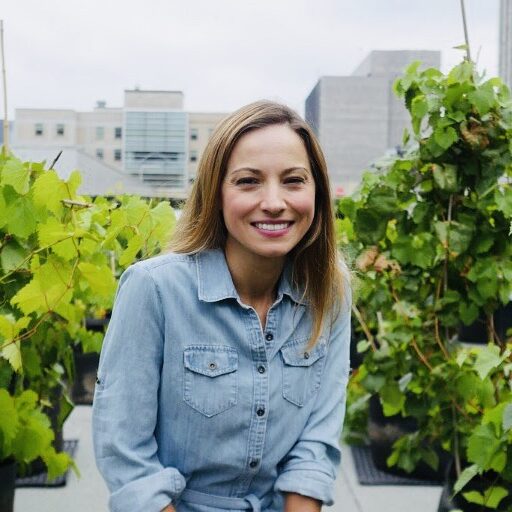
Véronique Lemieux
Coordinator and founder of Vignes en ville, Laboratoire sur l’agriculture urbaine (AU/Lab)
Véronique is the founder and coordinator of Vignes en ville, an experimental project to establish vineyards in an urban environment. Working in the wine industry for 8 years already after having worked in the field of solar energy, Véronique joined the Laboratoire sur l’agriculture urbaine de Montréal in 2016.
A graduate of Concordia University in International Business and a lifelong passion for ecology, she decided to get closer to the plant world. After completing a certificate in Permaculture at the State University of Oregon, she decided to take a training course in cold environment viticulture at the ITA (Institut de technologie agroalimentaire de Saint-Hyacinthe) in order to combine her passion for wine with that of agriculture. This dual training allowed her to establish five urban vineyards with a low ecological footprint on the rooftops and vacant lots of major institutions such as the Palais des congrès de Montréal, the SAQ, the ITHQ, Ubisoft Montréal and the Centrale Agricole d’Ahuntsic. The project has been deployed in this way because it has the unique feature of recovering urban residual materials.
Véronique is also a consultant in sustainable urban agriculture and is currently collaborating with various organizations and universities around the world, including the ISA in Lille, France, an agri-food engineering school that focuses on grapevine cultivation in urban areas.
In 2019, Vignes en ville was awarded the Novae prize for innovation with environmental impact for recycling the equivalent of more than 15,000 glass bottles by incorporating them into an innovative soil that aims to preserve natural sand reserves, a non-renewable resource.
Thanks to its unique and innovative nature, Vignes en ville has received exceptional media coverage. In fact, media from around the world have taken an interest in the project.
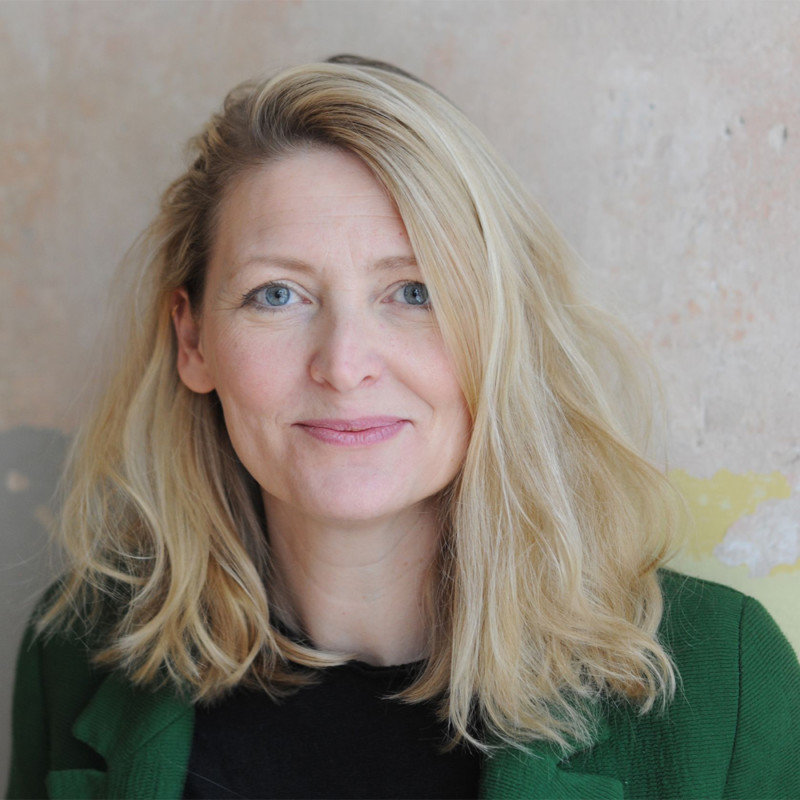
Stephanie Hankey
Stephanie Hankey is a designer, activist and social entrepreneur with over 20 years experience exploring the social and political impact of technology on society. As a practitioner and field leader she works across disciplines – technology, design, art and politics.
She is the co-curator of the award winning touring exhibition, The Glass Room. The Executive Director of the international NGO, Tactical Tech and a Loeb Fellow at Harvard Graduate School of Design.

Régis Chatellier
Responsible for use, innovation and prospective studies at the National Commission for Informatics and Freedoms (CNIL) within LINC (CNIL’s Digital Innovation Laboratory). Régis Chatellier is leading studies and prospective exploration projects on emerging topics related to personal data and privacy, available on the site https://linc.cnil.fr
He also teaches in the “Governance of urban data” workshop at the urban school of Science Po Paris.
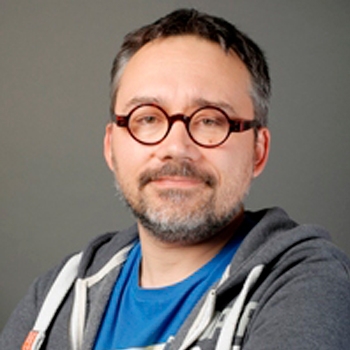
Hubert Guillaud
An editor by training, he is a journalist and editor-in-chief of InternetActu.net, the medium published by the New Generation Internet Foundation, a partner of Monde.fr since 2008.
Blogger, he was also director of the digital collection “Washing Machine” at Publie.net, he has devoted several electronic books to digital transformations.
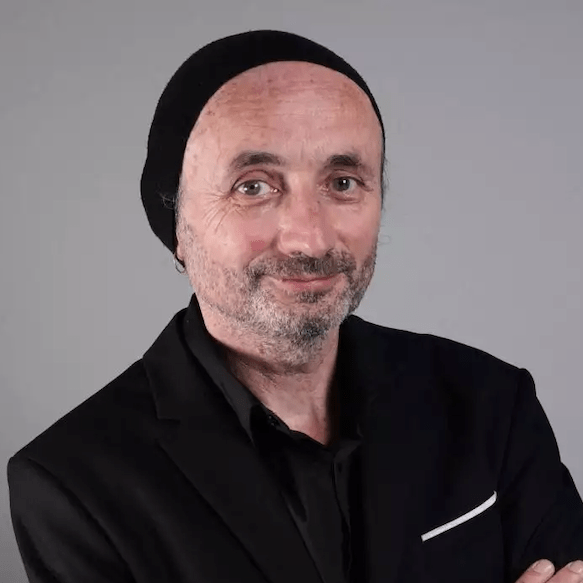
Pierre Jannin
Pierre Jannin is a municipal councilor for the City of Rennes, Digital and Innovation Delegate. He is also a researcher at INSERM and works at the Faculty of Medicine of Rennes. He is the manager of the Inserm MediCIS team.
It strives to co-construct a responsible digital territory. The deployment of 5G in Rennes was an opportunity to carry out work bringing together elected and non-elected officials.
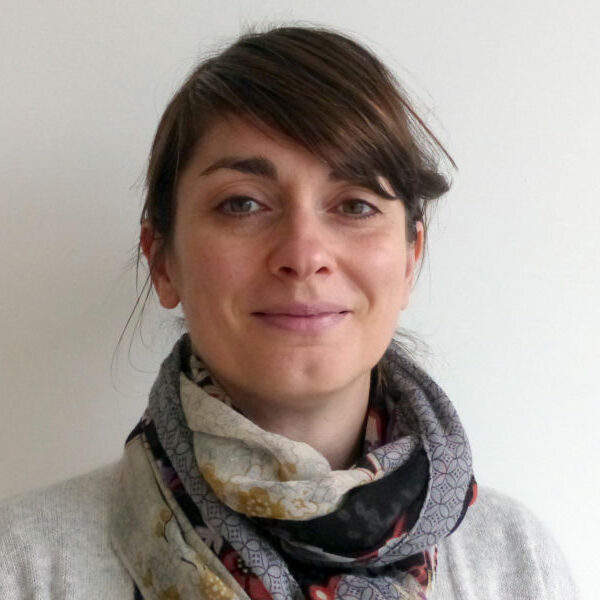
Élisabeth Lehagre
Jurist-lawyer specialized in new technologies
Élisabeth Lehagre is a lawyer specializing in new technology law. She is now a digital ethics consultant at Babotics and president of the BUG association. His work focuses on the protection of personal data and
on the impact of technologies with regard to the legal framework. She is particularly interested in the growing human / machine interactions that call for a necessary ethical positioning. She is the author of the recent study “Algorithmic impact assessment: a tool that has yet to prove its worth”
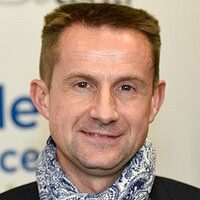
Norbert Friant
An engineer who joined the local authority after a career in the private sector in high-growth digital sectors, he creates, runs and directs the Digital Service of Rennes Métropole. Animator of very heterogeneous communities around the design and prototyping of projects to introduce innovative practices in the community, he makes the link between citizen digital projects and public and territorial issues of digital subjects. He is also the Brittany regional referent for the French network of FabLabs.
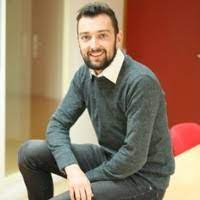
Romain Chefdor
Digital project manager and coordinator of the FabLabs network in Rennes, Romain Chefdor is a child of the Internet. A graduate in town planning and development, and interested in digital manufacturing through hacking and open-source, he is now in charge of a development mission for digital uses within Rennes Métropole.
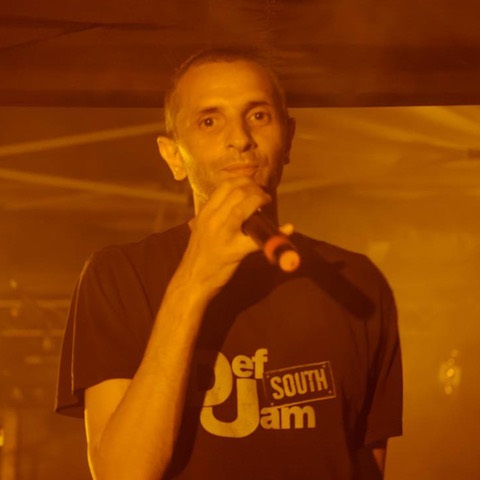
Naufalle Al Wahab
Project manager within the BUG association
Naufalle Al Wahab graduated in political science in Rennes and in communication at the Sorbonne (CELSA). He is involved in the development of citizen uses of digital technologies around the commons and collaborative approaches. He leads the Wiki community in the Rennes area and is also the pilot of the badges.bzh digital know-how acquisition project.
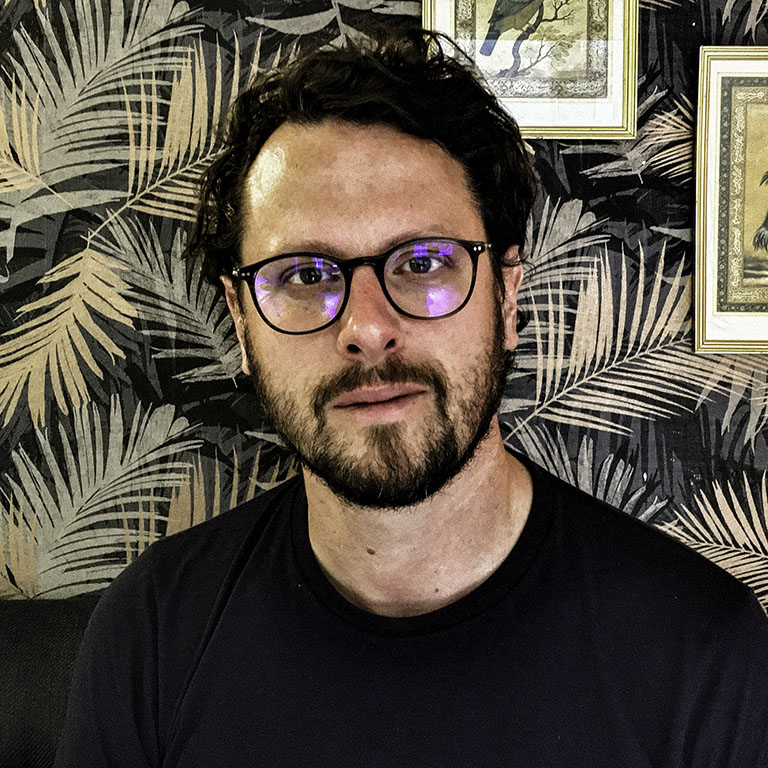
Raphaël Mady
Geographer by training, graduate of IEDES La Sorbonne, he is coordinator of the association BUG. He accompanies and trains non-profit project leaders in methodology. He is interested in the challenges of the city of tomorrow through projects of circular and collaborative economy.
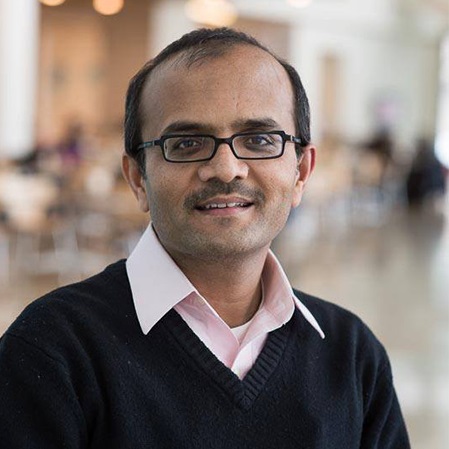
Chintan Vaishnav
Mission Director, Atal Innovation Mission, India
Dr. Chintan Vaishnav is a socio-technologist, an engineer trained to design and build large-scale systems that possess both human as well as technological complexities. Presently, he serves as the Mission Director for Atal Innovation Mission (AIM), a flagship initiative of the government of India under the auspices of the NITI Aayog. Chintan is on leave from Massachusetts Institute of Technology (MIT) for his present assignment. As a teacher, innovator, and entrepreneur, he has split his time between teaching and research at MIT and living and working with rural communities in India to build solutions that can overcome constraints fundamental to improving human conditions.
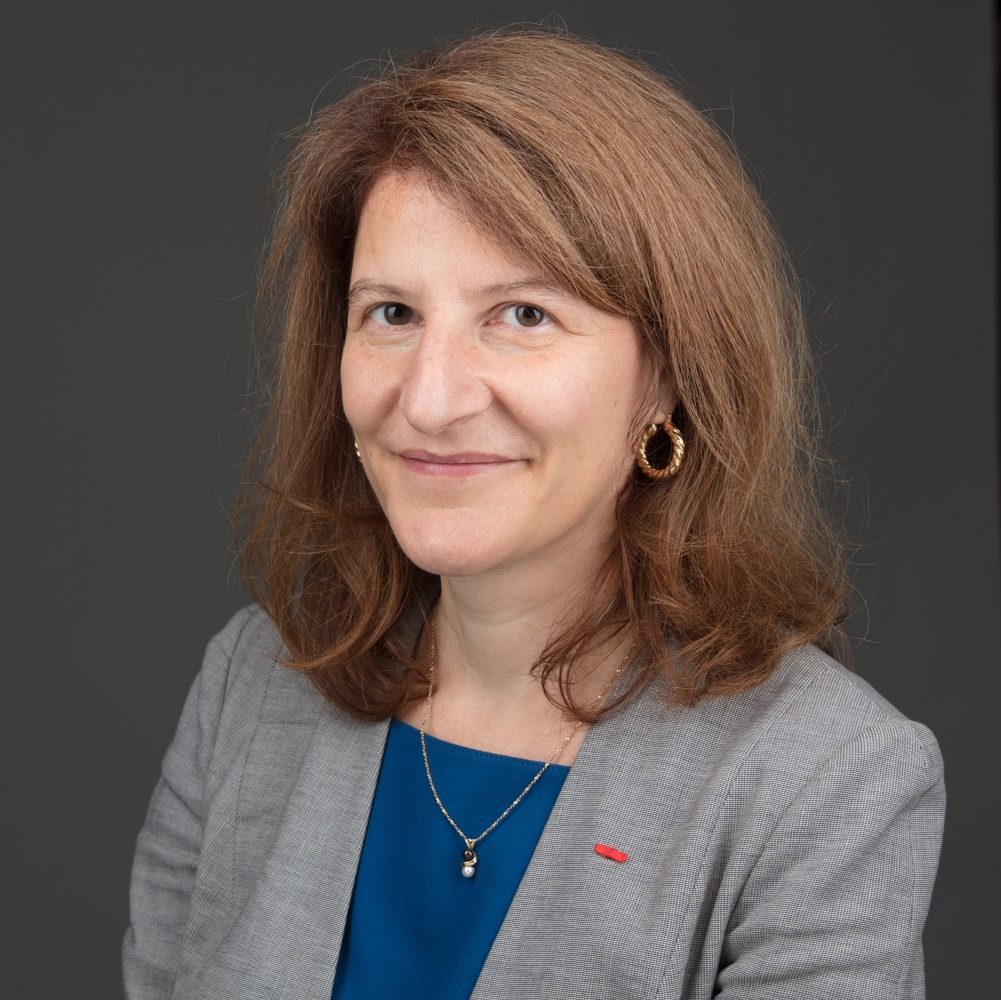
Corinne Gendron
Corinne Gendron, academic and researcher, jurist, MBA and sociologist, specialist in new forms of economic regulation and sustainable development, holder of the Chair of Social Responsibility and Sustainable Development at the Université du Québec à Montréal, and professor in the Department of Strategy, Social and Environmental Responsibility at the School of Management Sciences of the same university, President of the Scientific Council of the Institut français des sciences et technologies des transports, de l’aménagement et des réseaux (Instar).
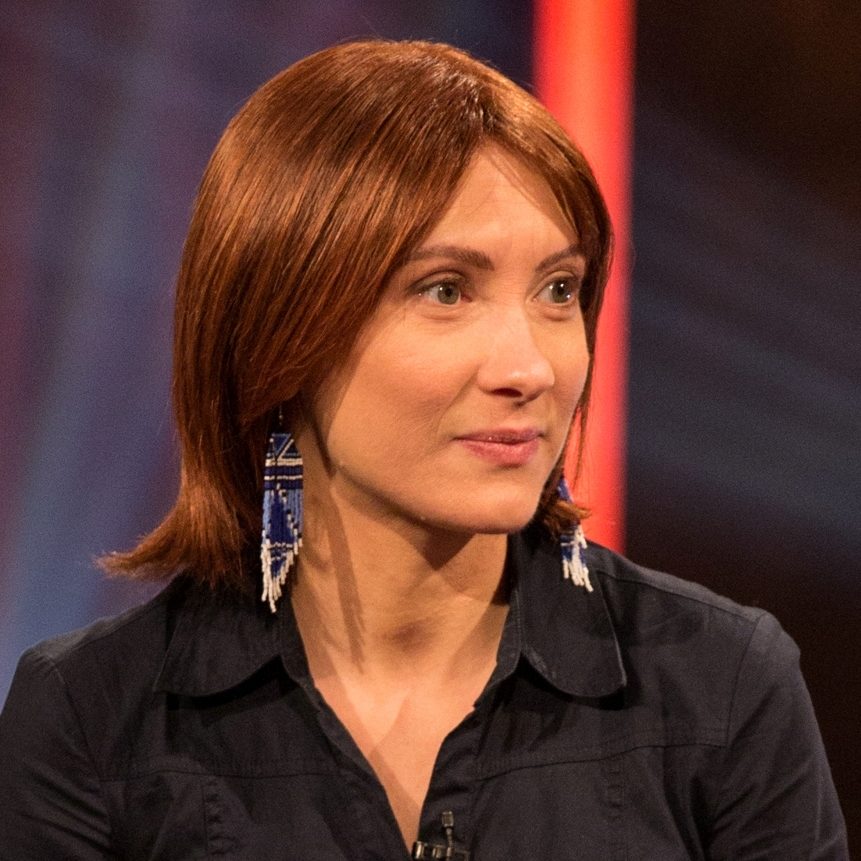
Moana Lebel
>International Speaker, Columnist at CBC Television, Expert Trainer in Biomimicry, Senior Consultant in Innovation and New Business Models, Co-Author of L’art d’imiter la nature (The Art of Imitating Nature), Hubert-Reeves Award Winner for Best Popularization of Science Book in Canada, Founder and Director of Institut de biomimétisme (Biomimicry Institute) in Montréal.
Moana Lebel has enabled many industrialists and professionals to design innovative projects, offering superior economic, social and environmental performance, revolutionizing the ways of thinking and doing. She has raised awareness and trained thousands of people through her actions in Canada, Europe and the United States.
She owns a Bachelor’s degree in Biology with a Specialization in Toxicology and Environmental Health from University of Quebec in Montreal (UQÀM), a double Master’s degree in Sustainability Management from Sherbrooke University and Superior School of Commerce and Management (ESCEM) in Tours-Poitiers in France. Finally, she’s a Biomimicry Specialization Graduate from Biomimicry 3.8 in the United States, a program now delivered by Arizona State University (ASU).
FAB CITY
Programme
Soon

At a glance
The Fab City Summit from August 13 to 15, 2021
A three-day series of conferences and workshops offered by world and local luminaries that highlight the global issues facing cities and territories and the concrete initiatives surrounding the growth of Fab Cities.
The tracks of the participative workshops of the Fab City Summit :
- Ecological Transition
- Life Sciences
- Sustainable Design and Biomimicry
- Advanced Production Ecosystem
- Education for the future
- Regenerative Economy

























